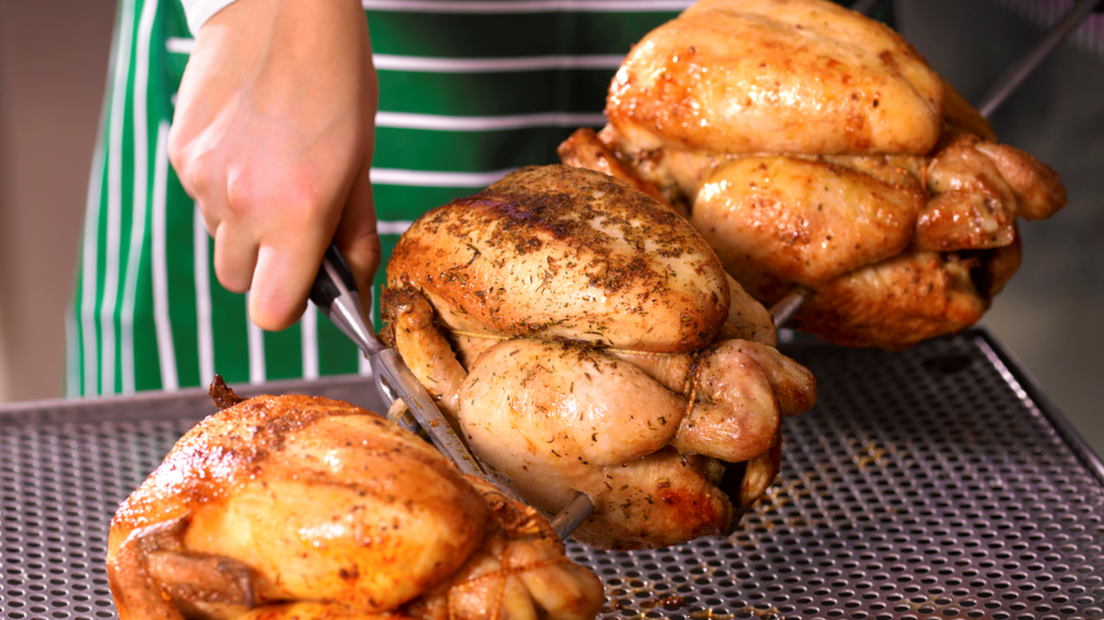Chicken price rises: 'By far the worst we've had it in 23 years'
- Published
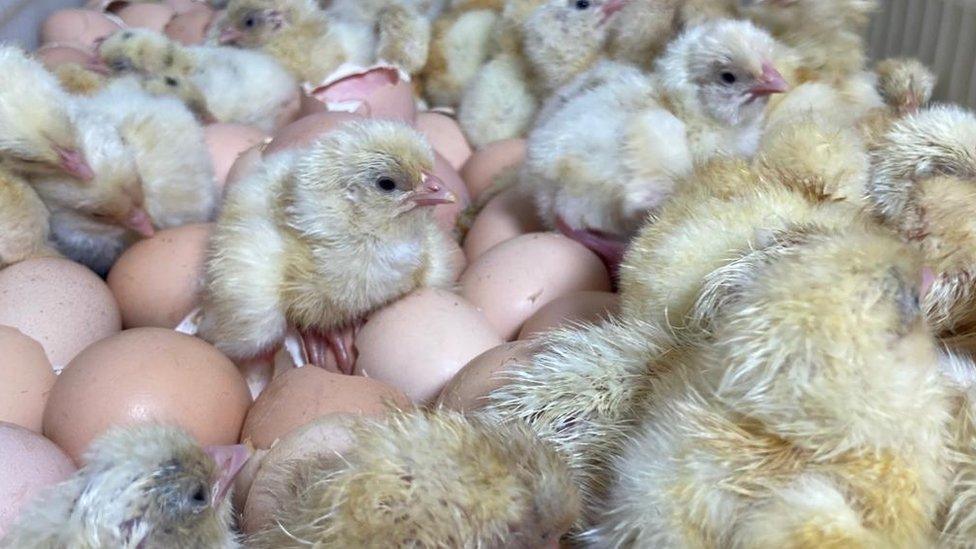
Chicken is getting more expensive - the industry says costs are rising across the board
The price of chicken is on the increase - those in the industry say the war in Ukraine, energy prices and Brexit are all resulting in higher costs. How are the price rises affecting chicken production from farm to fork?

'It is getting very difficult'
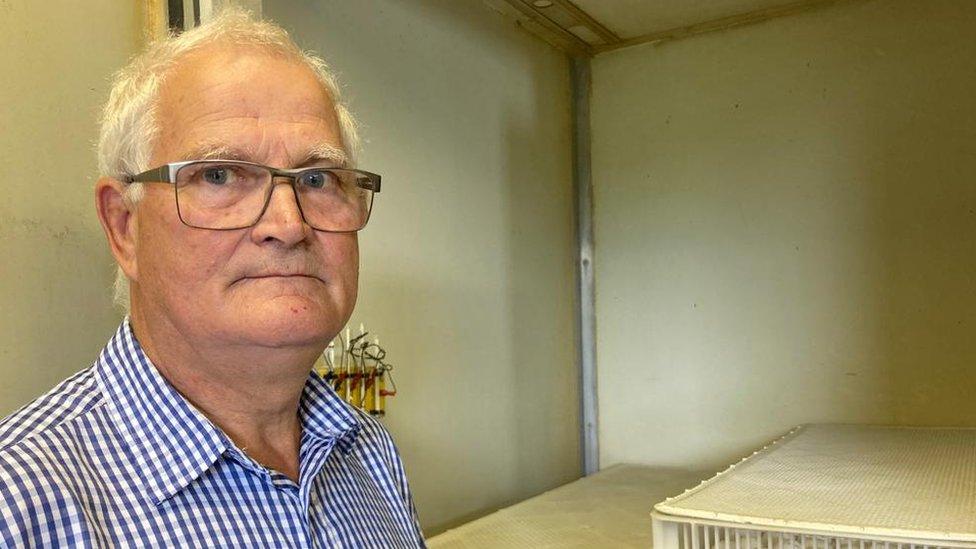
Poultry business owner Stephen Wigginton says the cost of the eggs he imports from France has just gone up
Stephen Wigginton runs a hatchery near Wisbech, Cambridgeshire, where thousands of eggs are incubated each week ready to be delivered across the UK.
He says compared to a year ago "we're probably in a worse state now with the ever-increasing electric costs, fuel costs, vaccine costs, cardboard costs, that we as a small business have had to endure.
"We've also got the issues with Brexit, has given our costs a slightly higher edge," the 66-year-old says.
He says his electricy bill has gone from £200 a month last to just over £600 a month.
"The cardboard boxes we put the chicks in used to cost us £800 per 1,000 - now it's more than £1,000 per 1000," he says.
Mr Wigginton adds the vaccine he needs for the animals has increased in price by 8%.
He says the companies he supplies with chicks "are doing the best that they can to produce the best quality food that they can at an affordable price and that now it is getting very difficult because they've got additional costs, whether it's gas, feed, or processing costs".
He says in his 23 years running the business it is "by far the worst that we've had it".

'Cost are still rising'
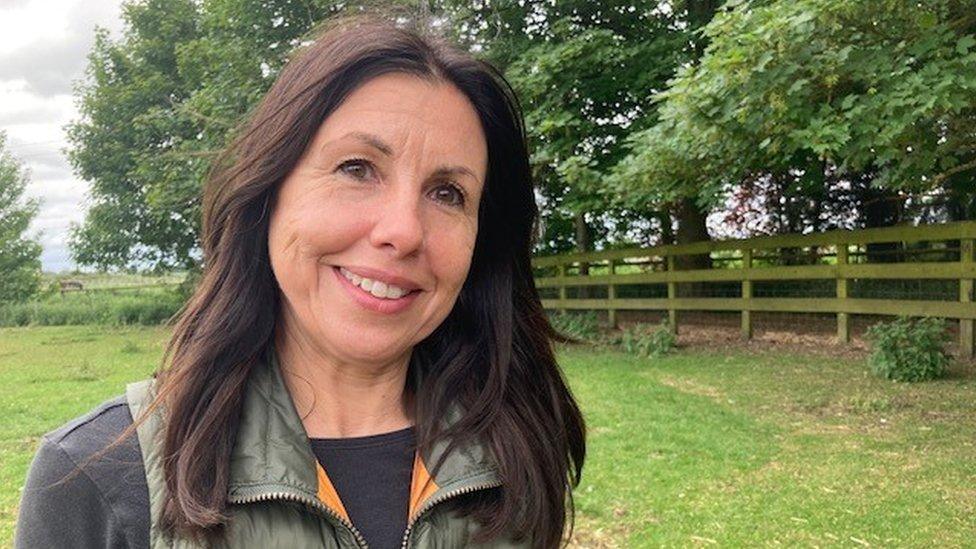
Animal fee supplier Emma Cross started her business because of her passion for animals
Emma Cross started her animal feed business in Ely, Cambridgeshire, two years ago in lockdown.
"It's been more difficult because obviously prices are going up, every time I order feed in from my wholesaler it's gone up a considerable amount so I have to be careful adding on my margin, it's quite difficult," she says.
The 52-year-old says: "Everything is going up at moment but it's quite scary how certain things have gone up a lot."
Her costs have gone up by more than 20% and "are still rising", she says.
Wheat, a key ingredient in chicken feed, has almost doubled in price because Russia and Ukraine produce about 30% of the global supply.
She says she is "baffled" feed is imported into the UK.
"We're in the middle of farming land, we shouldn't have to import corn and grain, it should be grown in the country," she adds.

'Our profit margins were shrinking so much'
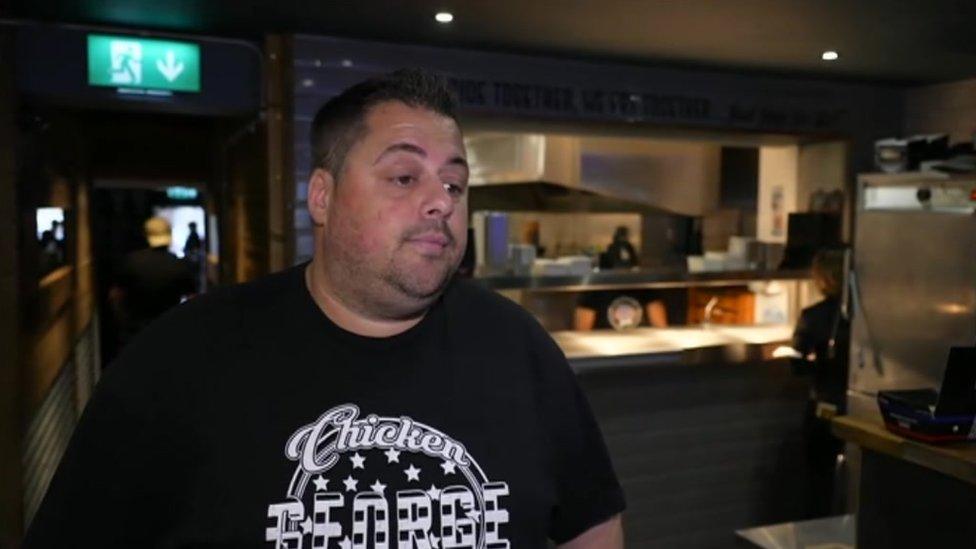
Dan Simpson says his restaurant had to reluctantly raise its prices
Business development manager Dan Simpson runs a chicken restaurant and takeaway in Hitchin, Hertfordshire.
He says the price of chicken has "nearly doubled across the board".
"In December we were paying just under £20 a box for chicken wings now we're looking £26, £27 a box.
"The inner fillet that we use for our strips were just under £30, now we're looking about £50.
"Fresh chicken almost overnight skyrocketed."
He believes price increases are down to Brexit, higher fuel and energy prices and the war in Ukraine.
"The whole world is linked, something can happen half-way around the world and we feel it here in Hitchin," he says.
Mr Simpson says shops like his are at the "bottom of the ladder, chains can bulk-buy, independent businesses are always up against it - this has made it much harder".
He says he has raised the prices in the restaurant but "we didn't want to, it was the very last resort as our profit margins were shrinking so much".
The wider cost of living has also had an impact on the business, he says: "We have seen a bit of dip during the week, people are doing as more of a treat at the weekend."

Find BBC News: East of England on Facebook, external, Instagram, external and Twitter, external. If you have a story suggestion email eastofenglandnews@bbc.co.uk
- Published24 May 2022
